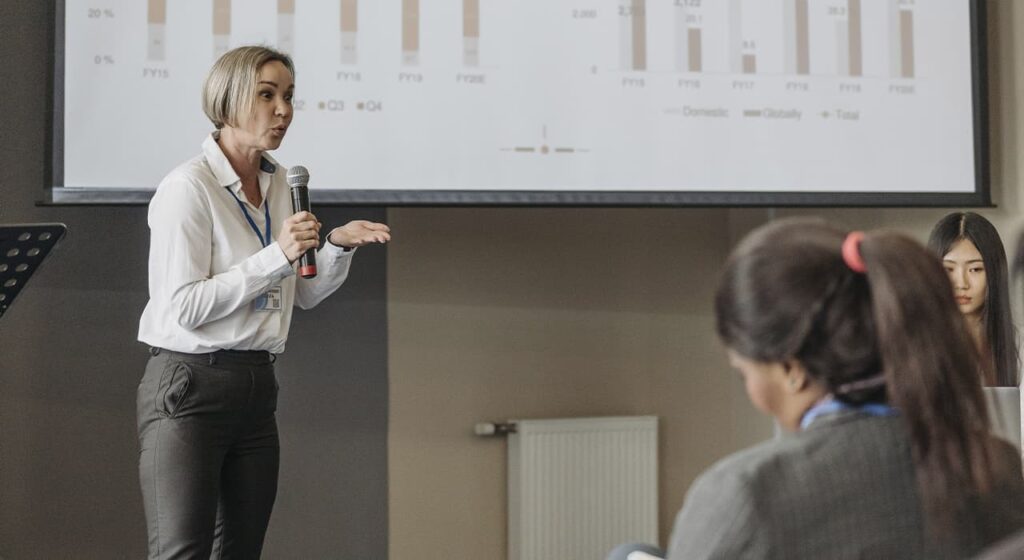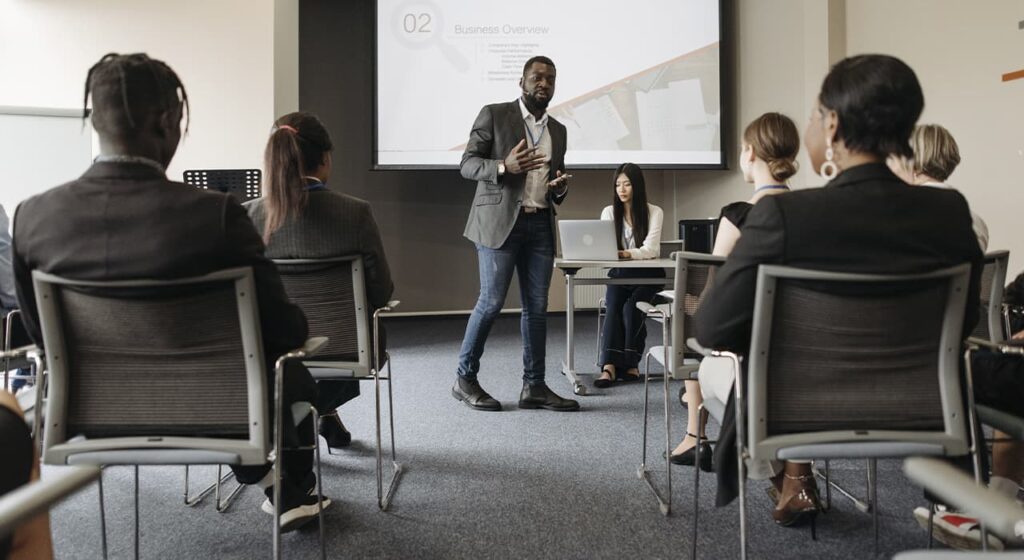Partners are attracted on a barter or commercial basis. Barter means offering one or two invitations to the partner organization’s employees to the event, placing your logo on the press ball and in handouts. It also assumes mentioning in advertisements, in the welcoming speech and at the closing of the event, in publications on your resources.
It is great if it will be possible to barter the full amount of costs for information partnership, printing and souvenir products; and at least partly – catering for coffee-breaks.
Try to reduce rental costs by negotiating a partnership. Business event venues are interested in tenants. Your conference guests are their potential audience. Offer them advertising in the event news or contacts from your attendee base in exchange for lower rental costs.
For-profit partners are companies or individuals who receive mentions at your conference on a for-profit basis. To attract these partners, put together a commercial proposal with several sponsorship package options.
The cost of the package depends on the status of the sponsor at the event (from an ordinary sponsor, of which there may be several, to a general sponsor). Sponsorship packages also vary in the amount of media exposure and mentions available at the event.
Estimate your event revenue: how many tickets you need to sell, how many you can actually sell and what price you need to set to cover costs without alienating guests. Take into account your plans to reduce your own expenses by attracting partners and sponsors.
Do not underestimate the cost of the conference in order to reach a wider potential audience. When organizing an event, it is not only the number of guests that is important, but also the quality of guests. The price demonstrates the value of the event to the business audience and cuts off the non-target audience of students and freeloaders.
Pricing begs the question of whether to discount tickets, and if so, for whom specifically? In some cases, a discount may prove to be an incentive to buy. But that only works in two cases:
The discount should be as personalized as possible;
Receiving a discount involves taking some sort of action: simple for the user, but useful for the organizer. For example, it can be a repost of the conference announcement in one or several social networks.
Encourage early registration. This will help you accumulate finances in advance, which will go to pay contractors in the process of organizing. Early registration means that if you buy a ticket before a certain date, the price tag will be lower. Typically, early registration closes one or two weeks before the event.



